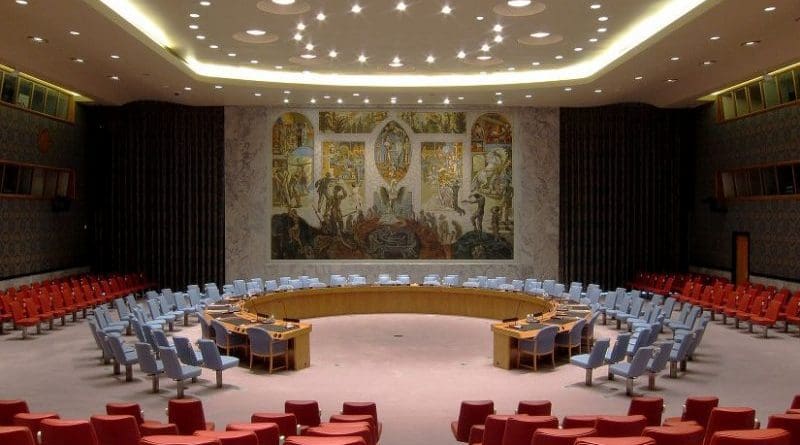Washington Plays Host To UN On Iran – OpEd
Facing dreadful shortages in its stockpile of Iranophobia necessary to scuttle the much-dreaded Iran nuclear deal, the Trump administration is now trying a more nuanced game by throwing an indirect jab, through Yemen. Thus, on Monday, January 29th, Washington is playing host to the UN Security Council members, by providing an exclusive tour of the missile debris that allegedly carries Iran’s signature, followed by a White House hospitality where Mr. Trump can, for a moment at least, shed his notorious UN-bashing habit and try to persuade the Council members about the imminent threat to world peace posed by Iran’s ballistic missiles.
Basking in this glory is, of course, the combative ambassador Nikki Haley, who is contemplating a relatively easy sell after the December dress rehearsal, when she played missile expert and claimed to show “irrefutable” evidence of Iranian mischief behind the Yemense Houthis’ missile attacks on their Saudi adversary, even though some of that evidence, according to a UN panel of experts, also showed some “US-made components” without however anyone in Washington or New York bothering to focus on that particular finding, which can of course be troublesome if, God forbid, it is traced to a US supplier.
Assuming for a moment that the Houthi rebels have somehow smuggled those US-made components to upgrade their pre-war arsenal of missiles, the question then is what would prevent them to also smuggle Iran-made components, given the state of lucrative arms black market today? Another question is how come the Saudis have not made the similar cry about the Houthi missile that was supposedly intercepted on January 20th?
The likely answer is that the so-called Iran “evidence” is a one-shot deal, somehow procured, and here one cannot rule out the role of sinister copy cats particularly by the ever industrious Israelis, and that the more recent missile has none of the Iranian fingerprints, in which case one must ask why would the Houthis need Iran’s assistance in the first place for their (short-range) missiles when they already have plenty to play around with, loosely stated.
But of course, it is perfectly legitimate to ask the much more pressing question regarding the inhuman, on-going atrocities against a whole population in Yemen perpetrated by the Saudis and their allies, who have managed to trap the UN in one of its most shameful episodes — of imposing a one-way arms embargo on the Houthis while giving green light to the US and British-backed Saudi-led coalition to throw Yemen back to the stone age, above all by their indiscriminate bombings of civilian infrastructure, hospitals, schools, markets, etc., thus causing what the UN has labeled as the largest humanitarian disaster in the world today.
Seeking to deflect attention from the Saudi war crimes and US’s own complicity, the Trump administration is now zeroing in on Iran’s conventional missiles in order to, as the saying goes, hit several birds with one stone, that is, on the one hand to cast blame for the Yemen war on Iran and its alleged “proxies” in Yemen and, on the other, to gain leverage in its current bid to introduce fresh restrictions on Iran’s missile program, pegged to the Iran nuclear accord as one of the 4 provisions introduced by the White House in its “fix it or nix it’ frenzy.
Concerning the latter, US Secretary of State Rex Tillerson, has now announced the formation of “working committees” consisting of US, France, England, and Germany, on various Iran (nuclear and non-nuclear) issues, stating that it has not yet been decided if Iran should be “engaged” on some of those issues at some point.
In other words, acting as the ‘New Rome,’ Washington now is clearly deluding itself that it can dictate terms to Iran, as if Iran is a helpless Melos where, to quote Thucydides, “the strong do what they can and the weak suffer what they must;” the new American tendency to replace the demons of Iranian “hegemony” with this totally disrespectful attitude, disrespectful of Iran’s power and regional clout, is symptomatic of a perpetual misperception denude of balance and objectivity, inviting disaster. This is a crucial point that, one can only hope, one of the brave ambassadors courted in Washington on Monday, can raise with their hosts, who have few ideas of how to promote peace in war-torn Yemen, and plenty on how to fuel it further by demonizing Iran.

